
Jhumpa Lahiri’s Roman Stories, Teju Cole’s Tremor, Safiya Sinclair’s How to Say Babylon, Benjamín Labatut’s The MANIAC, and Hilary Mantel’s A Memoir of My Former Self all feature among October’s best reviewed books.
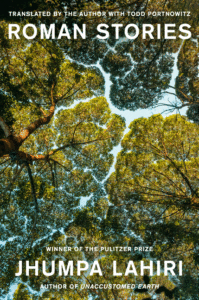
1. Roman Stories by Jhumpa Lahiri
(Knopf)
13 Rave • 4 Positive • 1 Mixed
Read Todd Portnowitz on translating Jhumpa Lahiri here
“Melancholy yet electric … The fluid transitions between Lahiri’s and Portnowitz’s translations elevate Roman Stories from a grouping of individual tales to a deeply moving whole. By putting many kinds of foreignness together, Lahiri shows that they all belong.”
–Lily Meyer (The New York Times Book Review)
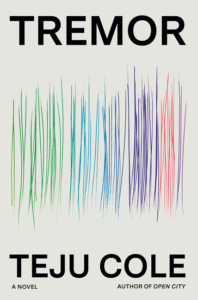
2. Tremor by Teju Cole
(Random House)
15 Rave • 2 Positive • 2 Pan
“As a form for capturing the meaning and matter of our lives, novels still feel wholly up to the task. And anyone who doubts how effectively this elderly literary genre might survive and evolve to reflect an impossibly complicated world would do well to read Teju Cole’s involute new book, Tremor … Cole continues to demonstrate just how elastic a novel can be and how trenchant he is. His book crosses national boundaries just as confidently as it crosses literary ones. The eclectic structure may be challenging, but, given the continuity of Cole’s vision, it’s never baffling … Has little traditional plot but never lacks for interest or incident … To read some of these chapters is to see the essay form in its most elegiac, elastic and epiphanic mode.”
–Ron Charles (The Washington Post)
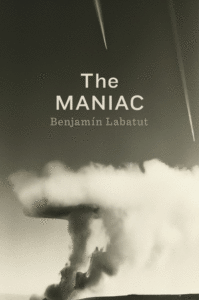
3. The MANIAC by Benjamín Labatut
(Penguin Press)
7 Rave • 11 Positive • 1 Mixed
Read a profile of Benjamín Labatut here
“Darkly fascinating … Riveting … Labatut handles all of this with impressive dexterity, unpicking complex ideas in long, elegant sentences that propel us forward at speed (this is his first book written in English). Even in the more feverish passages, when yet another great mind succumbs to madness, haunted by the specters they’ve helped unleash on the world, he feels in full control of his material.”
–Killian Fox (The Observer)
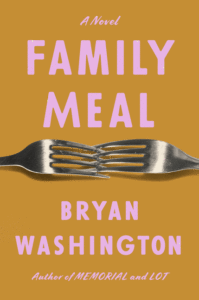
4. Family Meal by Bryan Washington
(Riverhead)
10 Rave • 5 Positive
“Masterful … What makes Washington’s writing about family so refreshing and complex is how he shows the ways people attempt to demonstrate the emotions they otherwise have trouble expressing to the ones they hold dear … Family Meal juggles a lot…but Washington lays it all out with the control and artistry of a ballet choreographer. Each story line gives the other strength.”
–Ernesto Mestre-Reed (The New York Times Book Review)
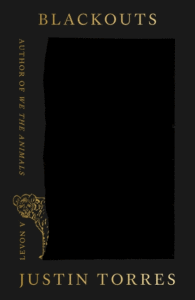
5. Blackouts by Justin Torres
(Farrar, Straus and Giroux)
11 Rave • 1 Positive
“A transfixing collage of gorgeous prose and manipulated illustrations, with themes of cultural erasure and the effervescence of lust and love … Easily 2023’s sexiest novel … Astonishing … It steers clear of contrivance, thanks to edgy illustrations, an origami structure, and the author’s exquisite eye and ear. This is a novel of ideas, too, brimming with queer history, racial defiance and the injustices of the Freudian era … Run, don’t walk, to buy it.”
–Hamilton Cain (The Star Tribune)
**
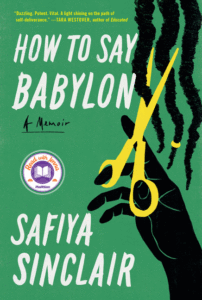
1. How to Say Babylon by Safiya Sinclair
(37 Ink)
8 Rave • 3 Positive
Listen to an interview with Safiya Sinclair here
“Astounding … a personal story so fierce, honest and utterly absorbing that it’s impossible to put down. In How to Say Babylon, Sinclair uses that fire she found so long ago to pen a powerful portrait of a young woman cleaving her way out of hardship to wield a mighty voice all her own. … Boundless and beautiful and all the rest, How to Say Babylon is, in a word, a triumph.”
–Alexis Burling (The San Francisco Chronicle)
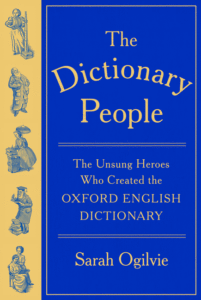
2. The Dictionary People: The Unsung Heroes Who Created the Oxford English Dictionary by Sarah Ogilvie
(Knopf)
8 Rave • 2 Positive
“Ogilvie has provided a sprightly, elegant tribute to the ordinary readers…who made up the bulk of the O.E.D.’s work force, largely unpaid and unsung, filling in millions of slips in their spare time … An engrossing survey … The real joy of The Dictionary People is to be reminded that any group of people pinned at its intersection will still burst forth every which way, a tapestry of contradictions, noble and ignoble, wild and banal.”
–Dennis Duncan (The New York Times Book Review)
3. A Day in the Life of Abed Salama: Anatomy of a Jerusalem Tragedy by Nathan Thrall
(Metropolitan Books)
7 Rave • 3 Positive
“A penetrating, wide-ranging, heart-wrenching exploration of life in Palestine under Israeli occupation. I know of no other writing on Israel and Palestine that reaches this depth of perception and understanding.”
–David Schulman (The New York Review of Books)
4. A Memoir of My Former Self: A Life in Writing by Hilary Mantel
(Henry Holt & Company)
6 Rave • 2 Positive • 1 Mixed
“Mantel…left behind a literary legacy that also includes a wide range of her right-handed writing. A Memoir of My Former Self gathers together the best of it. Spanning four decades, and comprising work that originally appeared in various outlets, this bravura collection of articles, essays, reviews and talks showcases the inquiring mind, fierce intelligence and shrewd way with words of a dexterous—and indeed, ambidextrous—prose stylist … Mantel impresses with her sharp wit, informed opinions and keen observations.”
–Malcolm Forbes (The Washington Post)
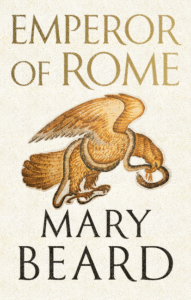
4. Emperor of Rome by Mary Beard
(Liveright)
6 Rave • 2 Positive
“An erudite and entertaining new book by the redoubtable classics scholar and feminist Mary Beard … Beard, a consummate storyteller, finds ‘ancient gossip’ understandably hard to resist. Such stories also free her up to pursue her subject thematically instead chronologically, pointing not just to differences among the emperors but also similarities … As a writer, Beard is so appealing and approachable that even the recalcitrant reader who previously gave not a single thought to the Roman Empire will warm to her subject.”
–Jennifer Szalai (The New York Times)

